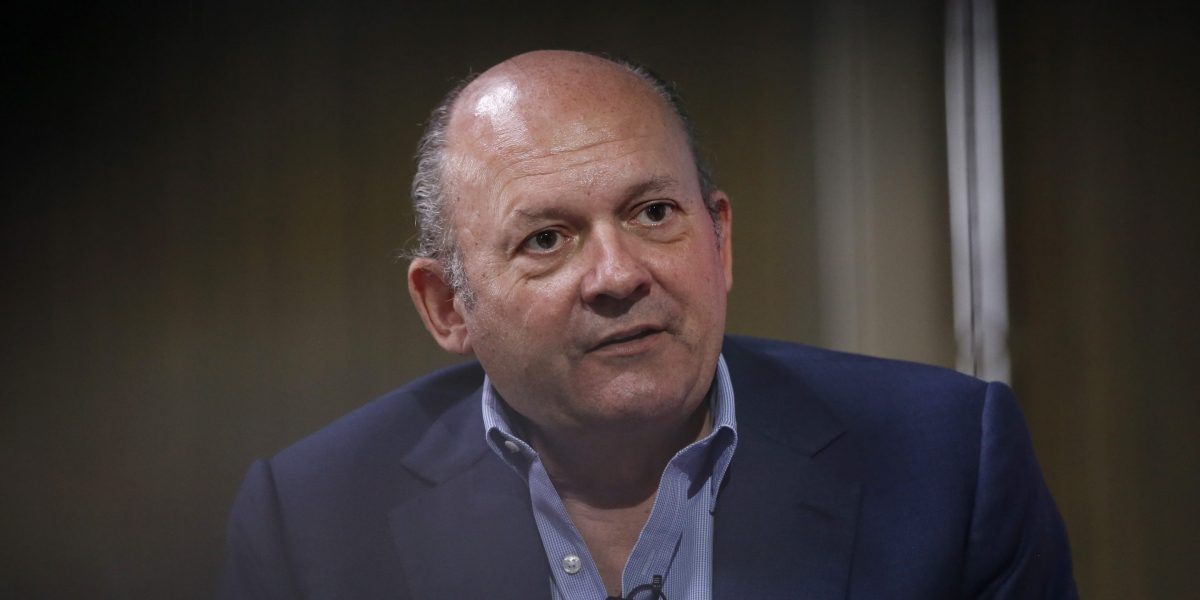In the span of just three weeks, Rocket Cos. has thrown around more than $11 billion in a bid to reshape the way Americans buy, sell and finance their homes.
The goal: make everything run through Rocket, from start to finish.
In Rocket’s vision of the housing market, buyers and sellers will connect through Redfin Corp., the home-search platform it agreed to purchase for $1.75 billion earlier this month. Then homebuyers in need of a mortgage will turn to Rocket, which has become the No. 3 player in an industry once dominated by banks. And, finally, that loan will need servicing, which can be done by Mr. Cooper Group Inc., which Rocket announced on Monday that it will buy in an all-stock deal valued at $9.4 billion.
“This deal doesn’t just signal consolidation, it marks a fundamental shift in how homeownership services are structured, delivered and scaled through technology and vertical integration,” Kirill Krylov, a senior portfolio strategist at Robert W. Baird & Co., wrote in a note to clients Monday.
The sweeping moves, which have stunned the real estate industry, come as the US housing market suffers from persistently high interest rates and home prices that have sidelined many would-be buyers. Last year, sales of previously owned homes fell to the lowest level since 1995. The deals will also cement Rocket’s position as a mortgage behemoth, after banks including Wells Fargo & Co. have largely pulled out of the business.
The timing of the announcements, just months into Donald Trump’s presidency, point to Rocket’s optimism that the financial-technology firm will face fewer regulatory hurdles in its bid to get bigger. Detroit-based Rocket has ambitions of bringing every kind of consumer-finance transaction under its umbrella, as evidenced by its push into credit cards and personal loans to smooth out earnings historically tied to the ebb and flow of mortgage rates.
The combined Rocket and Mr. Cooper will service a book of $2.1 trillion of loans and nearly 10 million clients, according to Monday’s statement. Mr. Cooper shareholders will receive 11 Rocket shares for each of Mr. Cooper’s stock they own, representing a 35% premium, the companies said. As of the end of 2024, Rocket was the third-largest US mortgage originator, behind United Wholesale Mortgage and PennyMac Financial Services Inc., according to data from Inside Mortgage Finance.
Out of the gate, the tie-up with Mr. Cooper is expected to generate run-rate revenue and cost synergies of approximately $500 million, Rocket said. The benefits of the servicing-focused deal can also have a balancing effect for Rocket’s lending business.
When interest rates rise, borrowers are less likely to refinance, unlocking extended payments for the servicer. That provides a helpful counterbalance for Rocket’s home-loan business, which tends to see originations decline when rates rise. Similarly, when they fall, there’s more refinancing, so the lending business becomes more valuable while the servicing business is hurt.
Rocket is positioning itself to take advantage of both scenarios.
Uniting the top retail originator with the industry-leading servicer should strengthen Rocket’s ability to drive lower-cost growth through “its origination-servicing flywheel,” Zelman & Associates analyst Ryan McKeveny said in a note to clients Monday.
The boards of both companies have already approved the deal, which is scheduled for completion in the fourth quarter after receiving regulatory approvals, the firms said. Following the deal, Mr. Cooper Chief Executive Officer Jay Bray will become president and CEO of the Rocket Mortgage division, reporting to Rocket CEO Varun Krishna. Billionaire Dan Gilbert will remain chairman of the broader Rocket Cos. company.
Rocket’s ascension can be attributed in part to the fallout of the 2008 financial crisis, when Wall Street banks largely retreated from the space. Bank of America Corp. became the nation’s largest mortgage lender and loan servicer with its 2008 purchase of Countrywide Financial Corp. BofA was the 19th-largest home lender by volume in 2024, according to Inside Mortgage Finance.
‘Musical Chairs’
“It’s like a game of musical chairs, and Rocket just grabbed two more chairs,” said Mike DelPrete, who teaches courses on real estate technology at the University of Colorado Boulder. “If you’re a company that isn’t part of an ecosystem, when the music stops you might be out.”
Nonbank mortgage servicers also grew in the post-financial-crisis period, with then-major players Nationstar, Ocwen and Walter snapping up servicing contracts from the big banks that wanted to cut their exposure to the mortgage business. Nationstar renamed itself Mr. Cooper in 2017.
“When you look at how the world has evolved and the world has changed, the mortgage business has become far more competitive, much more difficult to run really efficiently inside of a large bank,” Wells Fargo & Co. CEO Charlie Scharf said at an investor conference last May. “Not that it’s not possible, but it has brought with it a huge amount of risk.”
Regulators’ Concerns
Regulators have previously expressed concerns about whether tying together components of the homebuying process result in fewer options and higher rates for consumers. Late in Joe Biden’s presidency, the Consumer Financial Protection Bureau sued a unit of Rocket for giving incentives to and pressuring real estate agents to exclusively refer homebuyers to the lender.
The scheme — which the financial regulator said violated the Real Estate Settlement Procedures Act, a 1974 law governing homebuying transactions — resulted in buyers with higher mortgage rates and less competition in the industry. At the time, Rocket called the CFPB’s claims “a distortion of reality.”
That lawsuit, along with a slew of others, was dropped by the CFPB after Trump took office. The new administration largely shuttered the consumer-finance watchdog, with the future of the CFPB in limbo as efforts to shut it down make their way through the courts.
Both Mr. Cooper’s Bray and Rocket’s Krishna said they expect the deal to win regulatory approval.
“We have a lot of confidence that we’ll get this deal done,” Krishna said on a conference call with analysts Monday.
Banks Displaced
Since 2008, nonbanks have been steadily displacing banks in handling mortgage payments for US homeowners. Over the past decade, the share of mortgages in Fannie Mae and Freddie Mac securities serviced by nonbank mortgage-servicing companies rose to 60% from about 35%, according to a report last year from the Financial Stability Oversight Council.
Rocket has a reputation for getting homeowners to refinance their loans faster than other servicers, so its takeover of Mr. Cooper-serviced mortgages may mean that those homeowners end up refinancing their debt at a faster rate.
Since many of these mortgages are packaged into bonds as part of the $10 trillion-plus market for mortgage-backed securities insured by the US government, that means investors who own those securities will end up getting their money back sooner than anticipated, increasing pricing volatility.
“Rocket is known for getting borrowers to refinance their mortgages really quickly compared to other companies that handle mortgage payments,” said Walt Schmidt, a strategist at FHN Financial. “So for bond investors, there’s a greater risk now that they’ll get their money back early if interest rates fall.”
This story was originally featured on Fortune.com
Source link


 Entertainment8 years ago
Entertainment8 years ago
 Politics8 years ago
Politics8 years ago
 Entertainment8 years ago
Entertainment8 years ago
 Entertainment8 years ago
Entertainment8 years ago
 Tech8 years ago
Tech8 years ago
 Tech8 years ago
Tech8 years ago
 Tech8 years ago
Tech8 years ago
 Politics8 years ago
Politics8 years ago






